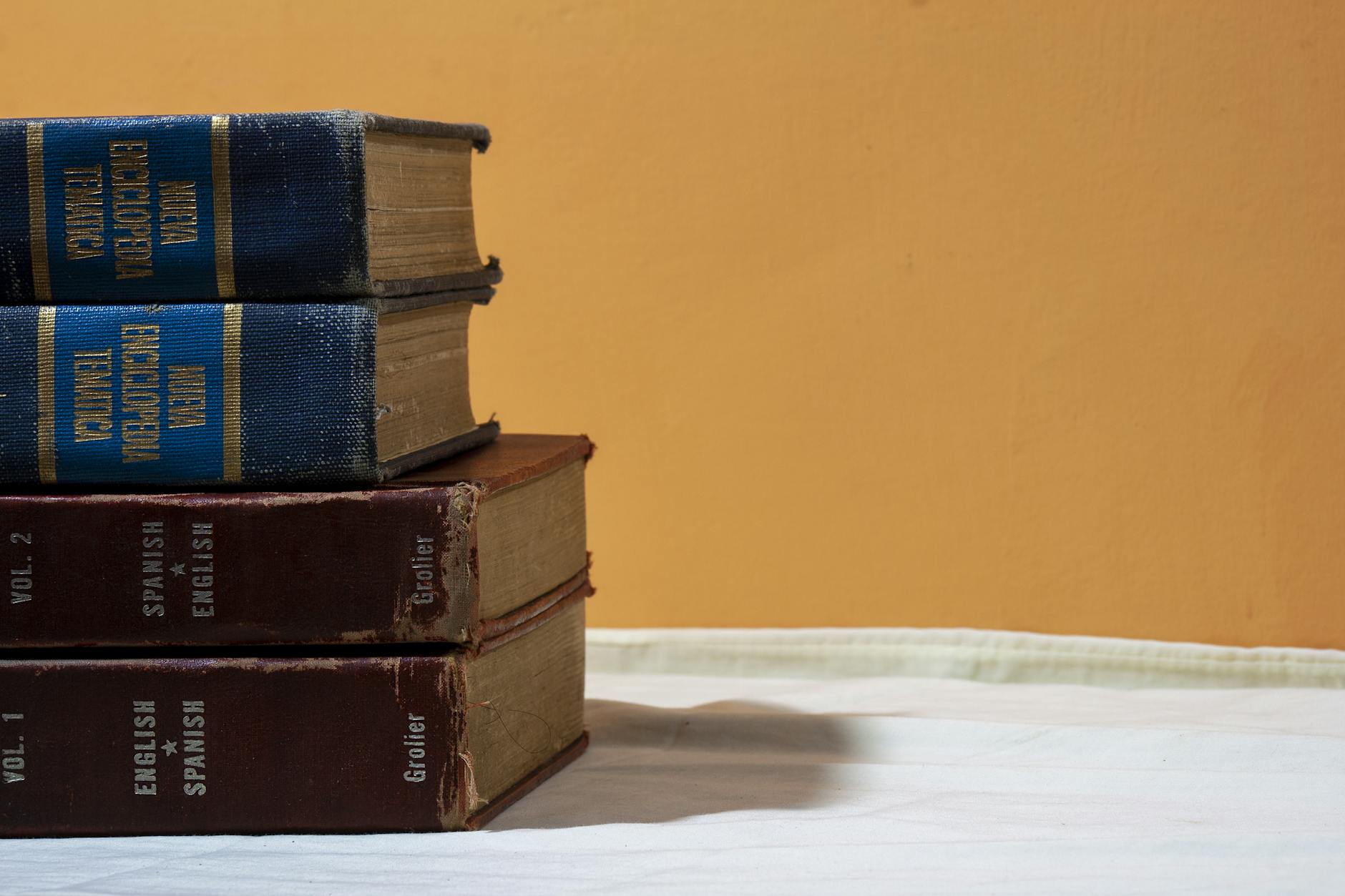Fun Facts, Surprising Origins, and Enduring Mystique: Exploring the World of Dictionaries
Delve into the quirky, surprising, and captivating universe of dictionaries—where words, history, and culture converge.

From the quirky origins of everyday words to the persistent myths about dictionary creation, the story of dictionaries is a tale as rich and complex as language itself. This article uncovers the little-known facts, historical shocks, and enduring significance of these crucial cultural artifacts.
Table of Contents
- What Makes Dictionaries Fascinating?
- The Mystery and Art of Lexicography
- Notable Histories and Surprises
- Dictionary Myths and Misconceptions
- The Evolution of Dictionaries
- Marvels of Modern Dictionaries
- Frequently Asked Questions (FAQs)
What Makes Dictionaries Fascinating?
For many, dictionaries are simply reference books—practical tools for students, writers, and crossword enthusiasts. Yet, beneath their utilitarian covers, dictionaries are dynamic records of language in flux, time capsules of culture, and arenas where curiosity often trumps authority.
- Dictionaries Are Cultural Artifacts: They reflect the priorities, taboos, and creativity of their era. Each new edition is a mirror to contemporary life.
- They Chronicle Language in Motion: Far from being static, dictionaries update regularly to track changing usage and the invention of new terms.
- Full of Surprises: From the accidental inclusion of nonsense words to the delightful oddities of regional slang, dictionaries surprise even their creators.
The Mystery and Art of Lexicography
Lexicography—the craft of compiling dictionaries—requires precision, patience, and a sense of adventure. Lexicographers are both scientists and storytellers, balancing methodical research with an appreciation for linguistic whimsy.
What Lexicographers Really Do
- Track Usage, Not Just Meaning: Lexicographers document how words are used, not how they “should” be used. This descriptive approach preserves language as it lives and breathes.
- Dive Deep into History: Each definition is underpinned by etymological detective work, sometimes stretching back centuries.
- Curate, Edit, and Sometimes Invent: Occasionally, lexicographers make mistakes or even include fictitious entries as copyright traps, sparking decades-long debates among enthusiasts.
Notable Lexicographers and Unwritten Rules
- Samuel Johnson: His 1755 dictionary shaped the notion of English lexicography, blending wit with scholarship.
- Noah Webster: Brought American English to print, codifying spellings that still distinguish US words from their British counterparts.
- James Murray: Led the monumental Oxford English Dictionary, often with the help of dedicated volunteers—including, famously, contributors from asylums and prisons.
Notable Histories and Surprises
Did you know that the English language’s most famous dictionaries are riddled with eccentricities, errors, and even hoaxes?
- The Ghost Word: The entry “dord” appeared in Webster’s dictionary for years, caused by a misreading of “D or d,” an abbreviation for density. It endured until 1947 before being revealed as a ghost word.
- Copyright Trap Words: Some dictionary makers inserted fictitious entries (e.g., “esquivalience”) to catch plagiarists. If such fake words appeared in a rival’s dictionary, theft was clear.
- Unusual Word Origins: Words like “fizzle” (once a polite term for flatulence) have evolved dramatically, both in usage and meaning.
Sample of Surprising Dictionary Facts
| Fact | Details |
|---|---|
| “Fizzle” | In the 1400s, meant “to break wind quietly”—now, a word for anticlimax. |
| “Ultracrepidarian” | Someone giving opinions beyond their expertise—a word for a widespread phenomenon. |
| “Octothorpe” | The real name for the hashtag (#) symbol. Its origin remains partly mysterious, even to Merriam-Webster. |
| “J” | The last letter added to the English alphabet, in the 16th century. |
Dictionary Myths and Misconceptions
Dictionaries, despite their revered status, are often misunderstood. Here are a few persistent myths—and the facts behind them:
- Myth #1: Dictionaries Are Authoritative Rule Books
Fact: Most modern dictionaries are descriptive, documenting the language as it exists, not as authorities decree it must be used. - Myth #2: All Words in Dictionaries Are ‘Real’
Fact: Dictionaries may include regionalisms, slang, archaisms, and the occasional ghost word or copyright trap. - Myth #3: Dictionary Compilers Are Anonymous Geniuses
Fact: The process is collaborative, often involving hundreds of experts, volunteers, and editors. - Myth #4: Dictionaries Are Immutable
Fact: Language is always changing, and so are dictionaries—with regular updates in print and digital formats.
The Evolution of Dictionaries
The journey from handwritten word lists to today’s online behemoths is full of innovation and ambition.
- Early English Word Lists: Before the 17th century, dictionaries were simple glossaries, often focused on “hard words” or foreign phrases.
- Samuel Johnson’s Epoch: Johnson’s ambitious Dictionary of the English Language (1755) was celebrated for its breadth, humor, and literary references.
- Noah Webster’s Vision: By publishing a distinctly American dictionary, Webster laid the foundations for American English linguistics.
- Oxford English Dictionary: Begun in the mid-19th century, the OED aimed for comprehensive historical coverage. It still expands today, with new entries added continuously.
- Digital Revolution: The advent of the internet has made dictionaries more accessible, dynamic, and interactive than ever before.
Timeline: Key Moments in Dictionary History
| Year | Milestone |
|---|---|
| 1604 | First English monolingual dictionary (Robert Cawdrey’s Table Alphabeticall) |
| 1755 | Samuel Johnson’s seminal work is published |
| 1828 | Noah Webster’s first American dictionary |
| 1884 | First volume of the Oxford English Dictionary released |
| 1990s–present | Online dictionaries proliferate, including user-generated content and real-time updates |
Marvels of Modern Dictionaries
Today’s dictionaries are feats of technology and collaboration, offering far more than definitions. Here’s what sets contemporary dictionaries apart:
- Real-Time Updates: Words like “selfie” and “unfriend” can appear in published versions within months of becoming popular.
- Interactive Features: Online platforms allow users to hear pronunciations, see word histories, and explore visual thesauri.
- Greater Inclusion: Modern dictionaries strive to reflect marginalized dialects, slang, and non-standard language as valid and important.
- Fun Features: Games, quizzes, trend trackers, and word-of-the-day emails make learning both fun and sticky.
Did You Know?
- New Oxford American Dictionary’s 2009 Word of the Year: “Unfriend” (to remove someone as a ‘friend’ on a social network).
- Words with Surprising Roots: Many words—like “fizzle”, “ultracrepidarian”, or “octothorpe”—have backstories as colorful as their meanings.
- Collaborative Editing: Some major dictionaries solicit suggestions and examples from language enthusiasts, teachers, and the public.
Frequently Asked Questions (FAQs)
Q: How are new words added to a dictionary?
A: Lexicographers monitor published materials, social media, and spoken language for emerging terms. Once a word proves widespread and persistent, it’s eligible for inclusion in print or digital dictionaries.
Q: Are online dictionaries better than print versions?
A: Both have advantages. Online versions update rapidly and offer interactive features, while print editions are invaluable for deep study, historical research, and literary enjoyment.
Q: Why do some words go missing from dictionaries?
A: Dictionaries have limited space and must reflect usage. Obsolete, rare, or overly specialized terms may be dropped in favor of more current or common vocabulary. However, digital dictionaries often keep archaisms and rare words accessible.
Q: Who decides on “correct” spelling and usage?
A: Modern dictionaries are descriptive: they reflect common usage as found in reputable sources, not personal opinions of correctness. Language rules evolve, and dictionaries record these changes.
Q: Are there different types of dictionaries?
A: Yes! Beyond general dictionaries, there are specialized works: medical, legal, slang, rhyming, visual, bilingual, dialect, historical, and more.
Conclusion: The Enduring Enchantment of Dictionaries
Dictionaries are more than just lists of words—they are living chronicles of our ever-changing language and culture. Behind every edition lies a history of curiosity, controversy, and collective effort. The next time you leaf through a dictionary, remember: you’re not just holding a book. You’re holding a snapshot of human communication and imagination, past and present.
References
Read full bio of Shinta















Community Experiences
Join the conversation and become a part of our empowering community! Share your stories, experiences, and insights to connect with other beauty, lifestyle, and health enthusiasts.